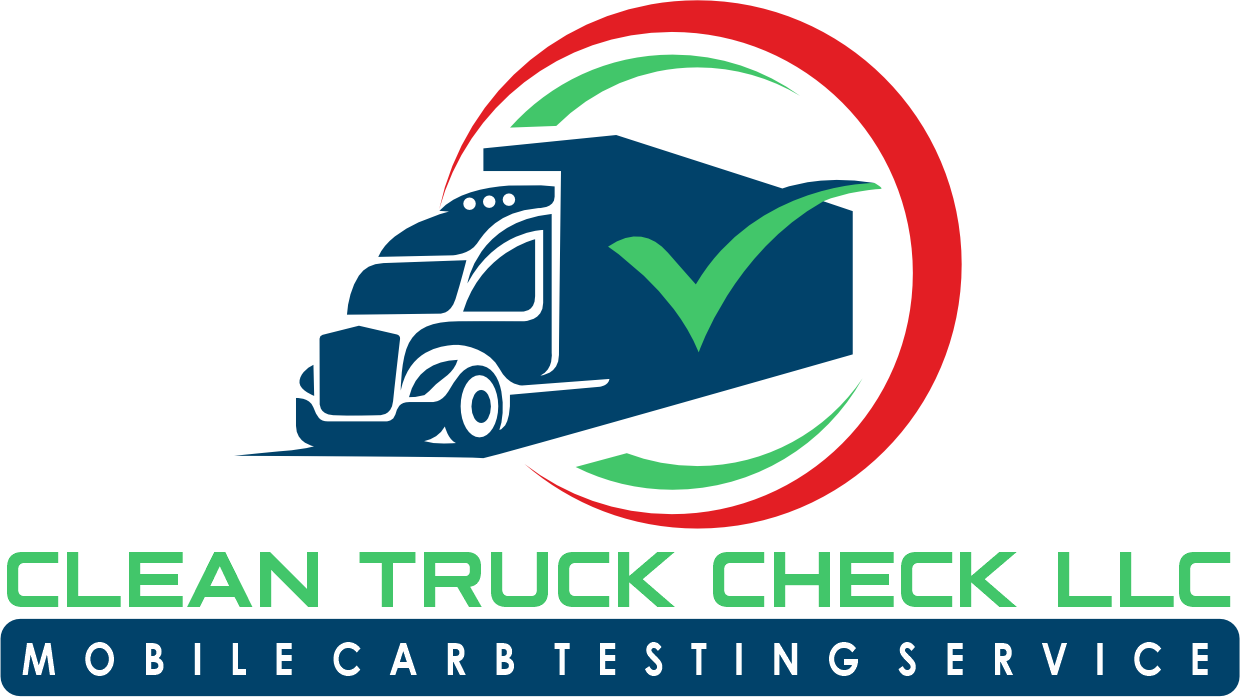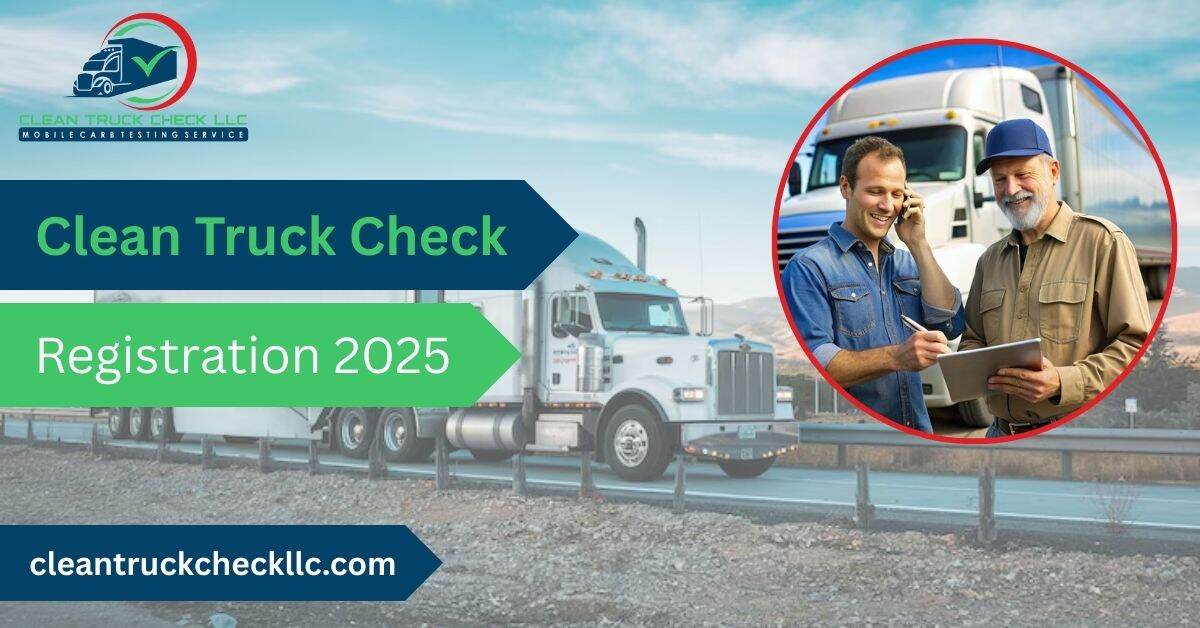The year 2025 brings some key updates for truck owners across the United States, especially when it comes to emissions compliance and registration. With stricter environmental regulations being rolled out in several states—especially California—drivers, fleet owners, and logistics companies are all facing new requirements under the Clean Truck Check program. One of the most talked-about updates is the clean truck check registration requirement that’s now being enforced more strictly than ever.
Whether you’re running a single diesel truck or managing a fleet, staying on top of these regulations is essential to keep your vehicles legal and on the road. In this blog, we’ll break down everything you need to know about clean truck compliance in 2025, including who needs to register, how it works, and what deadlines you should keep on your calendar.
What Is the Clean Truck Check?
The Clean Truck Check is an emissions monitoring program designed to keep heavy-duty trucks in compliance with air quality standards. It’s especially relevant for vehicles operating in states like California, where air pollution from diesel engines has long been a serious concern. The goal is simple: reduce harmful pollutants from medium- and heavy-duty vehicles on the road.
The program involves regular testing and verification that a vehicle’s emissions system is functioning properly. It applies to both in-state and out-of-state vehicles that travel into emission-regulated areas.
In 2025, the program is being expanded and enforced more strictly, with additional documentation and compliance requirements tied to registration renewals.
Who Needs to Register?
If your vehicle falls into the category of medium- or heavy-duty trucks (generally with a Gross Vehicle Weight Rating, or GVWR, of over 14,000 pounds), then you are likely required to complete the clean truck check registration process.
This applies to:
- Owner-operators
- Commercial fleet operators
- Rental or leasing companies
- Out-of-state vehicles operating within regulated zones like California
Even if your vehicle is based in a different state, if it enters areas with clean truck regulations, you must register it and ensure it meets the emissions standards.
What’s New in 2025?
As of January 1, 2025, several updates have been made to the Clean Truck Check program:
1. Expanded Enforcement
Vehicles caught operating in regulated zones without completing clean truck check registration are now subject to heavier penalties, including fines and holds on DMV registration.
2. OBD Testing Requirements
Trucks with onboard diagnostics (OBD) must transmit data showing emissions system status during periodic inspections. Manual checks are still allowed for older vehicles, but digital reporting is preferred.
3. VIN-Based Compliance
The system now uses VIN (Vehicle Identification Number) tracking to automatically flag non-compliant trucks during weigh-ins, roadside inspections, or license plate scans.
4. Online Portal for Registration
The entire clean truck check registration process can now be completed online through state regulatory websites. You’ll need to enter vehicle information, pay applicable fees, and upload emissions compliance documents.
How to Complete Your Clean Truck Check Registration
The process for clean truck check registration is fairly straightforward but requires some preparation. Here’s a step-by-step breakdown:
Step 1: Gather Vehicle Information
Have your VIN, license plate number, engine family number, and current odometer reading ready. If you’re managing multiple vehicles, a spreadsheet with all relevant data is helpful.
Step 2: Conduct Emissions Testing
Plan an emissions test at a certified testing center. If your vehicle has OBD capabilities, the test may only take a few minutes and can often be done remotely via telematics.
Step 3: Access the Registration Portal
Visit your state’s clean truck registration portal. California, for example, uses the CARB Clean Truck Check system. Log in or create an account, then select “Register a Vehicle.”
Step 4: Upload Documents
Upload your emissions test results and any supporting documents like proof of repairs, engine certification, or exemptions (if applicable).
Step 5: Pay the Fees
Registration fees typically range from $30 to $100 per vehicle per year, depending on the jurisdiction.
Step 6: Print and Display Confirmation
After completing registration, print the confirmation or save a digital copy. Some states require this to be kept in the vehicle during operation.
Why This Matters for Truck Owners in 2025
Compliance isn’t just a legal requirement—it also protects your business from unnecessary downtime, fines, and inspections. In 2025, enforcement agencies are using new technology like automated license plate readers and data-sharing systems with DMVs to catch non-compliant trucks in real-time.
Delays in clean truck check registration can result in:
- Registration holds at the DMV
- Tickets and fines up to $1000
- Being pulled off the road until compliance is met
- Negative impact on fleet performance scores
Common Questions About the Clean Truck Check
What if my vehicle is exempt?
Some trucks, like newer electric or hybrid models, may be exempt from some testing. However, you still need to register and prove exemption.
Can I do the testing myself?
Some basic OBD testing can be done with a portable scanner, but you’ll need results verified by an approved facility or remote diagnostics platform.
What happens if I miss the registration deadline?
Late fees apply, and your vehicle could be barred from operating in regulated zones until the registration is complete.
Final Thoughts
Staying compliant in 2025 means staying organized and informed. The clean truck check registration process is now more digital, streamlined, and strictly enforced than in previous years. For individual drivers and fleet managers alike, setting reminders for emissions tests and keeping registration up to date can save you time, money, and stress.
As regulations continue to evolve, keeping an eye on changes from local air boards and DMV announcements is more important than ever. If you’re unsure about your vehicle’s compliance status, don’t wait—check it today and get ahead of the curve.
Need help understanding your local registration rules or testing options? Most state clean air boards offer hotlines or support desks to guide you through the process.
And remember: the sooner you take care of your clean truck check registration, the smoother your ride will be through 2025 and beyond.

